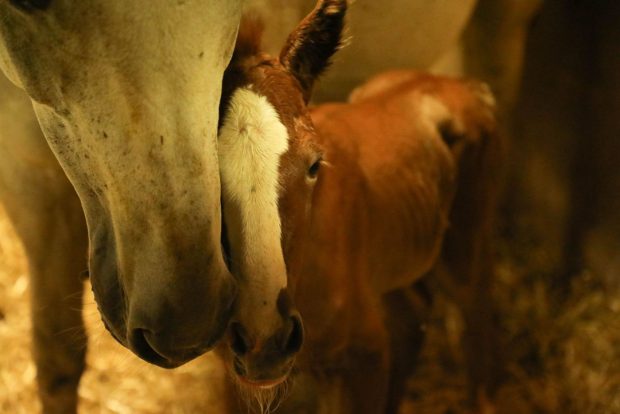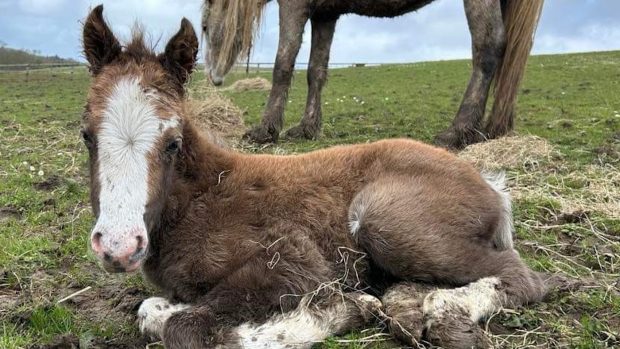When training young horses to accept new and unusual experiences, is it wise to make they approach a new experience or object? And can the input of a handler help?
Scientists in Denmark trained 22 young, unbroken warmbloods to walk wearing a headcollar and to move forwards in response to gentle shoulder tapping with a whip. Apart from wearing heart-rate monitoring equipment, they were unhandled.
The youngsters were turned loose in an indoor school and fed from a central feed bin. Once all were settled with this situation, they were divided into two groups.
A purple ball, bigger than a beach ball, was placed next to the feed container and the horses were introduced one by one to this new, scary thing beside their feed.
Horses in the first group were led individually by the handler to investigate the ball, encouraged by pressure on the headcollar and gentle tapping until confident enough to feed next to it. Horses in the second group were turned loose into the arena, one at a time, and allowed to explore the ball for themselves. The handler meanwhile stood by the feed and ball.
Behaviour was recorded and heart rates were monitored. The amount of snorting, puffing, pawing and other signs of alertness or stress were also noted. This introductory session was repeated three times on the same day for each horse.
The next day, each horse was again exposed to the situation — but without a handler. The encouragement of the handler had certainly made a difference, as the horses that had been led in-hand to the feed and ball were more confident approaching it.
But there was a twist. It was clear that the horses persuaded by the handler to approach the novel object suffered more stress in the initial training than those allowed to take their time in getting used to it.
So although such persuasion may make a horse learn more quickly, it may also expose horse and handler to a greater risk of stress-related panic reactions.
To read all the latest veterinary research and developments see this week’s issue of H&H (30 May 2013)



